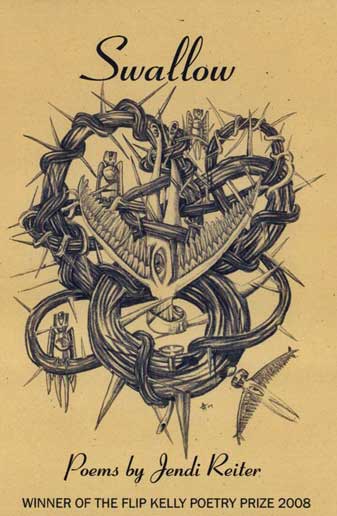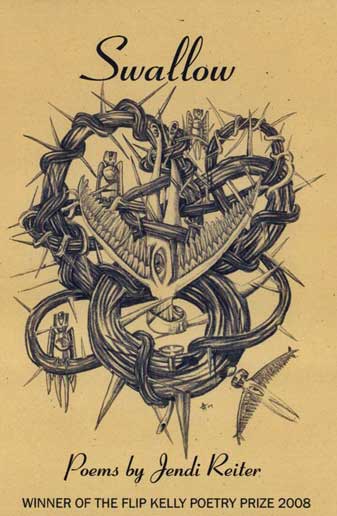Journaling about some difficult family memories last year, I wrote, “I became a poet so that I could tell the truth without being understood.” I hadn’t ever realized this until I wrote it down; apparently, transparency is a privilege I don’t always grant to myself, let alone other people.
Although Eve Tushnet and I disagree on what the Bible requires of gay Christians, I love how she has retained the queer sensibility, with all its outsider wit and willingness to embrace psychological extremes. The hunger for normalcy, for invisibility after a lifetime of persecution, leads far more “ex-gays” to go along with the cultural assimilation program of conservative churches, giving up not only the genital expression of their sexuality but an entire way of seeing the world from a marginalized and ironic perspective. Maybe Eve resists this pressure because, well, Catholics just have more style than evangelicals.
Anyhow, this is not yet another GLBT rant but an excuse to quote Eve’s awesome lines from this August 3rd post critiquing the aesthetic of “sincerism”:
It’s the privilege of those whose beliefs are basically mainstream to think that “realism” and sincerity are good ways of conveying the truth. Only those whose experiences and interpretations line up with mainstream culture can be guaranteed that their sincere heart-baring tales will be believed; and they’re the ones for whom this language of sincerity was made.
I could explain the relevance to my life but…that would be too sincere. Instead, here’s a poem from my chapbook Swallow, forthcoming this fall from Amsterdam Press.
How to Fail a Personality Test
That’s an ink blot. Too literal.
I know, it’s not actually an ink blot. There’s no ink
on it, now, is there?
It’s a photograph of an ink blot. That’s what it
signifies. What Derrida might have called the
absent present. Or was it the poison Gift?
No, I’ve never been tempted to drink household
cleansers.
You want me to say that one’s a bat, don’t you?
I know, I saw it on Wikipedia.
But I think it’s a pelvis. That’s the tailbone. Oh, I’m
sorry — looks like.
Because we don’t really have tails.
You’re the one showing me pictures of dead
people. Ha ha.
All right, it’s a bat. Does that make me
homosexual?
I just figured, with the velvet cape and all.
Everybody says that.
I could flip this one upside-down. Do you think
it would enjoy that?
Oh come on, don’t tell me you’ve never apologized
to a chair for walking into it.
Yes, it is all about me. That one’s a crab.
Why take longer to look for something that’s
not there?
I could wait for the stain on the ceiling to spread a
map over my day.
Did you know they sell a stencil to burn the Virgin
Mary onto your toast? I mean, why this picture?
I could name the clouds until a white horse
stopped for me.
But we all have a job to do.
A crab in a lace mantilla shaking a popsicle stick.
But all you say is Hmm.
I think that’s very sad.

